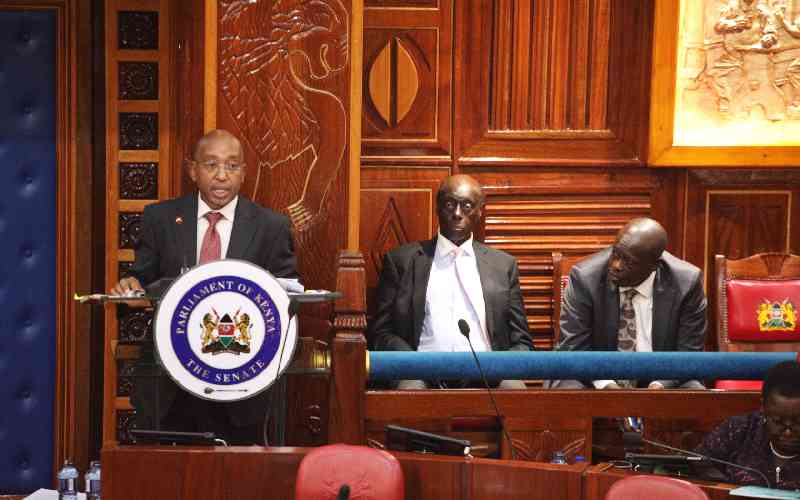
Complaints about the migration from the National Health Insurance Fund (NHIF) to the Social Health Insurance Fund (SHIF) are legion.
Retirees needing critical life-saving care like dialysis have found themselves having to pay multiples of what they are used to. Low-income families’ expected co-pay figures are essentially rationing access to healthcare.
How did we get here? The fundamental challenge facing most of the policies implemented so far by the Kenya Kwanza administration is that their primary objective has not been policy success but fiscal consolidation.
In other words, the shift from NHIF to SHIF was about optimising revenue generation and not improving the quality of public health services.
Once one looks at it this way, it becomes very clear why no one in the administration has been bothered to sweat the details of implementation, let alone effectively communicate to the public about the policy change.
Reasonable people acknowledge that policymaking is hard and complex. Kenyans of goodwill would understand if the government failed here and there, while putting in a good faith effort.
What is not acceptable is the apparent complete lack of care about how policy changes impact real Kenyans. Which is a shame.
- MPs call for suspension of Kenyans registration into SHIF
- Thorny path to UHC: Kenya's struggle with inclusion and promise of digital accessibility
- State accelerates digital transformation of healthcare
- Verification of NHIF assets, liabilities kicks off ahead of SHA rollout
Keep Reading
Health is the most important devolved function. Therefore, policymaking ought to reflect the fact that we have 47 units to learn from in terms of policy design and implementation.
A serious national government ought to have taken the time to design a national health insurance policy that is anchored on devolution and then piloted its implementation in a select number of counties and published its findings before the national rollout.
The rush that we have seen betrays the fact that SHIF is more about deficit reduction and not maximising access to quality healthcare for all Kenyans.
The claim here is not that we should not care about fiscal consolidation. Rather, it’s that fiscal stability should be a means to an end — so that we can afford to maximise access to essential public goods and services.
The writer is a professor at Georgetown University
 The Standard Group Plc is a multi-media organization with investments in media platforms spanning newspaper print
operations, television, radio broadcasting, digital and online services. The Standard Group is recognized as a
leading multi-media house in Kenya with a key influence in matters of national and international interest.
The Standard Group Plc is a multi-media organization with investments in media platforms spanning newspaper print
operations, television, radio broadcasting, digital and online services. The Standard Group is recognized as a
leading multi-media house in Kenya with a key influence in matters of national and international interest.











